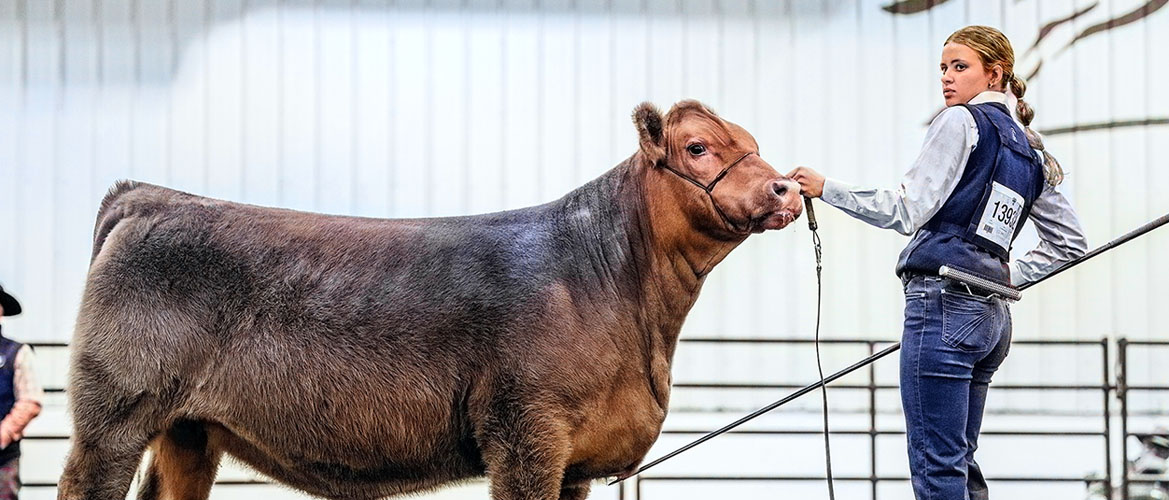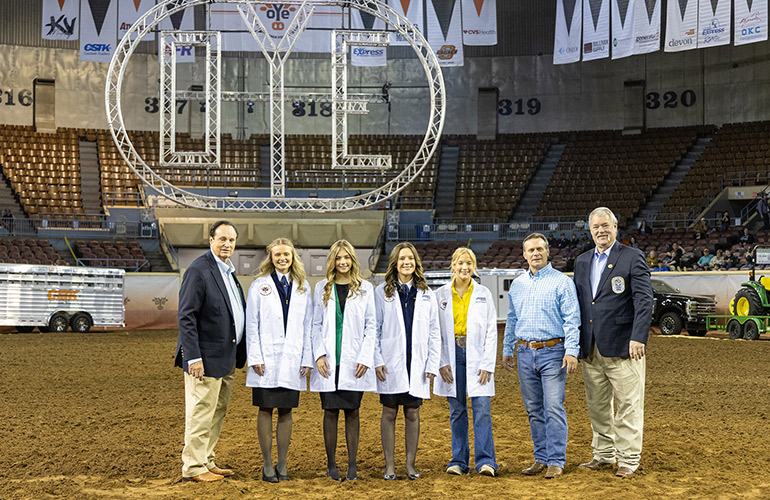Every year since 2013, Health Care Service Corporation's Oklahoma health plan has awarded four scholarships to high school seniors exhibiting at the Oklahoma Youth Expo who are committed to a medical program in rural health and wellness.
One of the earliest was Bailey Buck, who grew up raising livestock on her family’s cattle ranch in Madill, Oklahoma, for their farming business, but she always had dreams of a career in medicine.
Each year of high school she exhibited show cattle at the Oklahoma Youth Expo while shadowing family friends who worked in health care to learn as much as she could.
Working in agriculture didn’t directly prepare her to treat people, but she says those experiences help her connect with patients and make her a better doctor.
“It gives you a sense of pride to go back and serve the community that helped raise you,” says Dr. Buck, who splits her time between Choctaw Nation Health Clinic and Alliance Health in Durant. “It’s easy to relate to people here because I’ve probably been in a similar situation and that can help patients feel more comfortable.”
The expo is the world’s largest junior livestock show where young leaders exhibit their livestock and agricultural projects.
The idea behind the partnership is to encourage young students to return to their rural communities where physicians are often in short supply.
“As a company we focus on connecting Oklahomans to quality health care, which starts in the communities our members live and work in,” said Todd Hoffman, M.D., HCSC's chief medical officer for the state. “These scholarships allow us to continue to invest in the future of rural health care through our youth and we are proud to support their journey to making Oklahoma healthier.”
In 2023, 65% of rural areas reported a shortage of primary care physicians, according to a report published by the Health Resources and Services Administration.
The problem contributes to health disparities between urban and rural regions across the country, says Oklahoma Youth Expo President Tyler Norvell.
“At OYE, we believe in the potential of our youth to drive positive change,” he adds. When we support their education in health-related fields, we’re not just helping them reach their goals — we’re also investing in the future of rural health care. These students are the ones most likely to come back home and make a real difference, providing care that’s not only accessible but truly fits the needs of the people they serve.”


